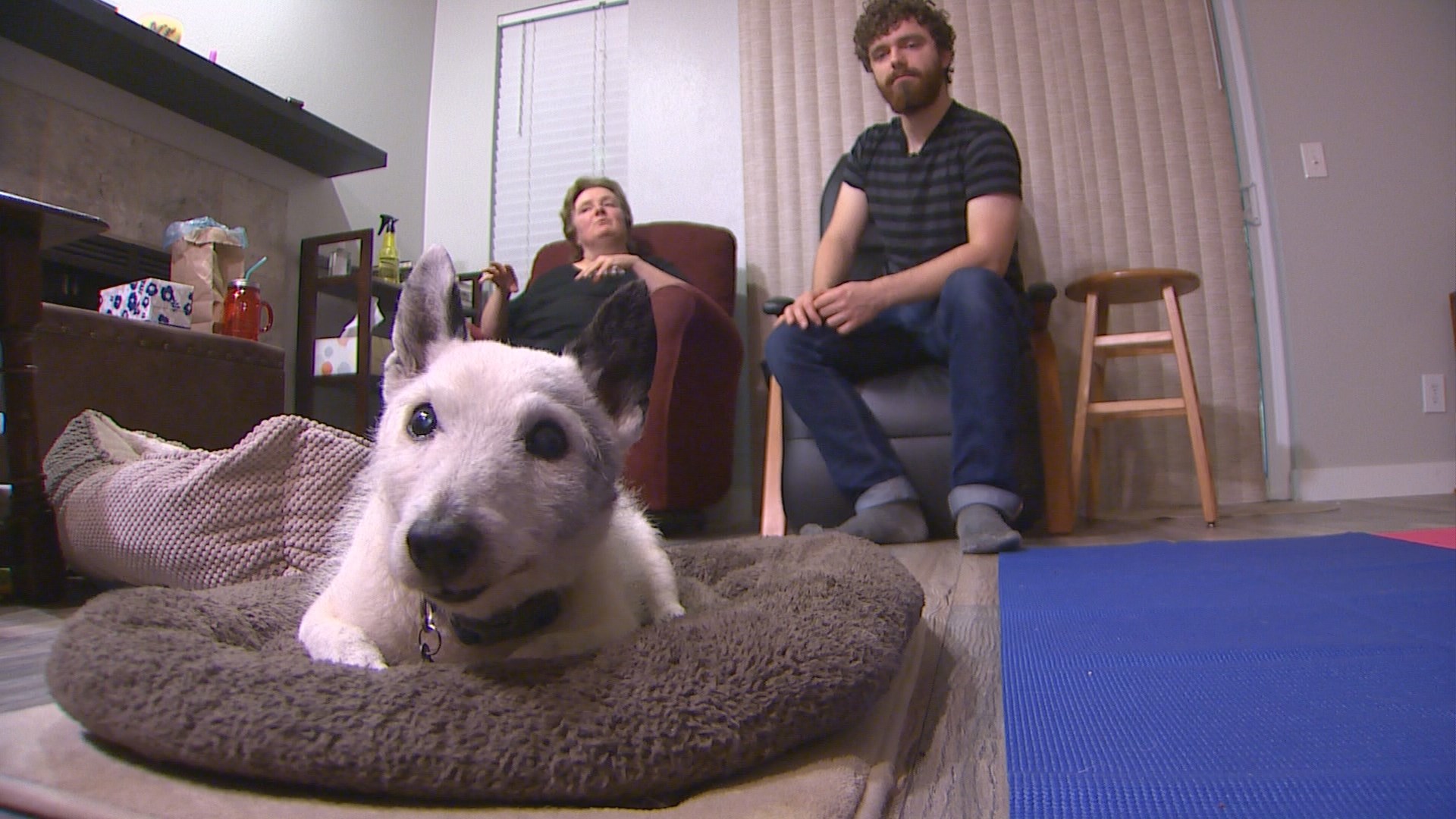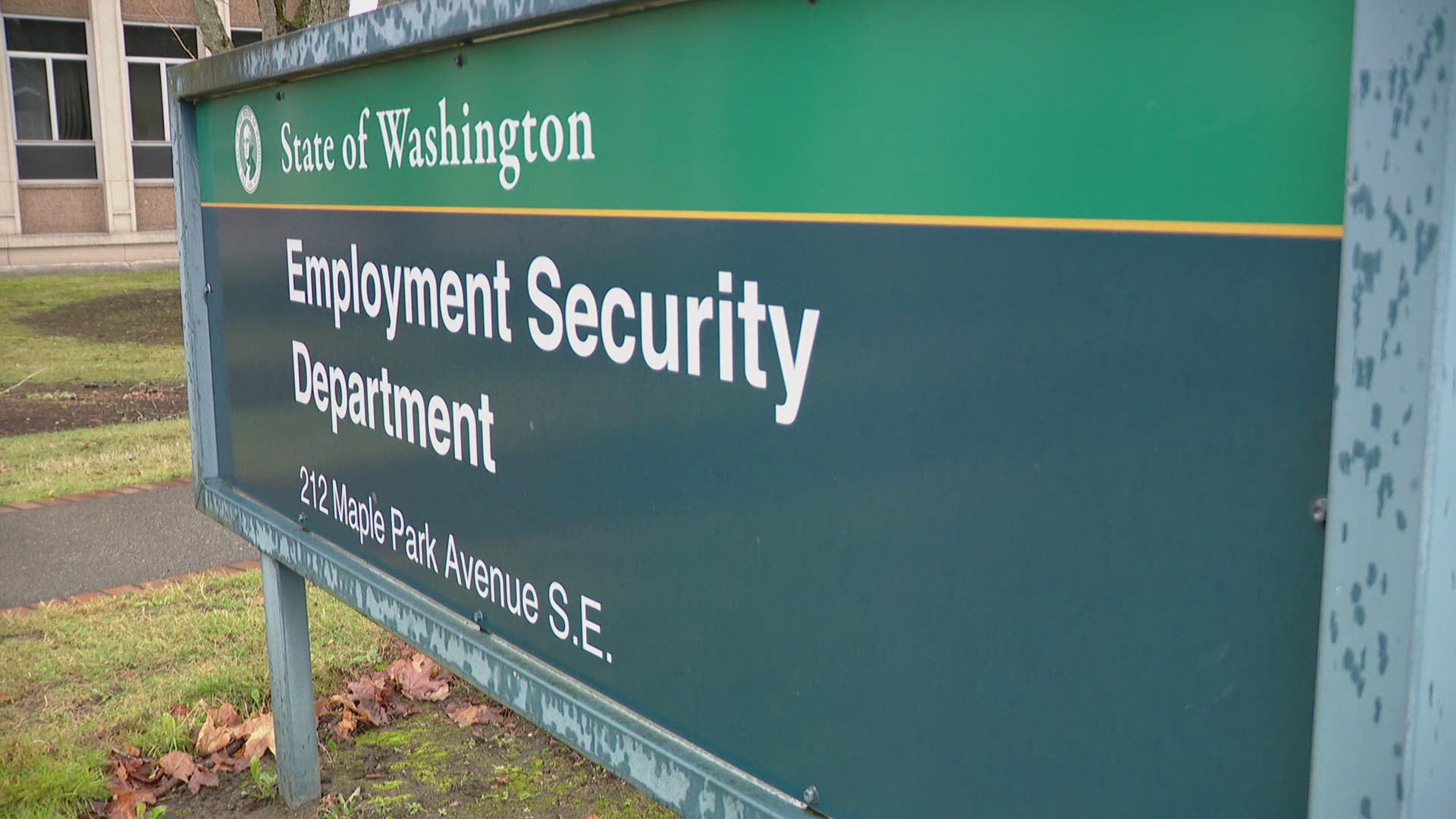This weekend, hundreds of veterinarians and animal lovers will converge in Seattle for a conference focused on a topic that's tough for a lot of people: preparing for the death of a beloved pet.
Organizers of the International Association for Animal Hospice and Palliative Care's event hope it provides an opportunity to educate the public about how animal hospice works.
"It was all so very new back seven years ago, but now it's really gaining momentum," said Michelle Nichols. "I would say, at the beginning, the first conference which was seven years ago, there were just 30 people. Now at this conference we're having this weekend, it will be close to 250 people attending."
Nichols is on the Association's Board of Directors. She also helped found a local nonprofit called The AHELP Project, that works to support both the pet and pet owner through end-of-life care.
One of the dogs they're currently helping is Lucky, an 18-year-old Jack Russell Terrier who lives with his family in Issaquah.
"The caregiving requirements for the aging dog are very much like the caregiving requirements for the aging human," said Liz Tidyman, who is one of Lucky's owners.
Liz Tidyman says that's why she and her 25-year-old son, Carson Tidyman, were interested in learning more about animal hospice care when they first heard about it from their vet.
"I don't have any brothers or sisters, so Lucky is the closest thing I've got to a sibling," said Carson. "He was my best friend growing up."
For Carson, it was tough to watch his friend grow old.
"I want to make sure I make the right decision for him," he said. "Like trying to figure out if euthanasia is the right choice, how to know how to make that decision as he continues to age, what would the natural dying process look like if that's the route that makes sense for Lucky, and what are options surrounding all those things."
The Tidymans found the support they needed through Nichols and The AHELP Project.
From at-home vet visits to education about pain management and administering medications, they say the organization has been able to help answer their questions and address their concerns.
"Animal Hospice is really taking a team approach to making sure pets are as comfortable as possible through their end of life journey," said Dr. Jennifer Christey, a veterinarian who has now been seeing Lucky for several months.
Christey does in-home consultations and visits and works closely with The AHELP Project. She says animal hospice is becoming more common in part because pets are living longer due to advances in veterinary medicine and the care their owners are providing at home.
"My recommendation is to ask your veterinarian if hospice is appropriate for your family and pet owners should know there are options," she said. "There are a lot of comfort care options out there today and we really can give pets great end-of-life care. So having a life-limiting disease doesn't mean the animal's life is over, it just means a new journey has begun."
Once a pet owner opts for animal hospice, Christey says they should also talk to their veterinarian about exactly how much they're willing and able to spend.
"Having an in-home veterinarian is definitely going to be more expensive than a general practitioner, and every path is different as far as what the cost will be," she said. "The cost can be tailored to what your needs are and what the pets needs are."
If you are interested in attending the International Association for Animal Hospice and Palliative Care conference in Seattle, click here to learn more. The conference is taking place October 20 through October 23.
"Through our events and caregiver support and programs, we can bring comfort for the family, and then they can take care of their animal friend more effectively and really be able to treasure this time in their lives. We call it bittersweet yet beautiful," said Nichols.
The Tidymans know that saying goodbye to Lucky will be difficult, no matter what. They also know that animal hospice might not work for every family, but say it feels right for them.
"This is a special time in our lives to give Lucky attention, and to have his attention," said Liz. "And that's not going to last forever. So the care we provide for him and our interest in his well being is exactly the same as it would be for our human family members."


